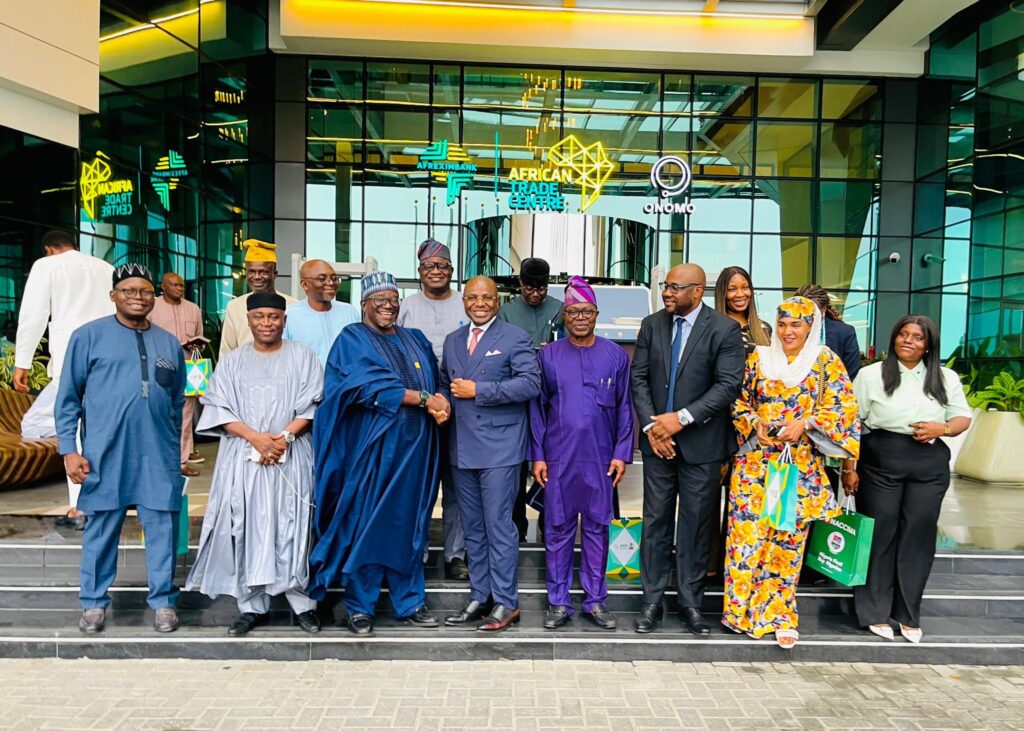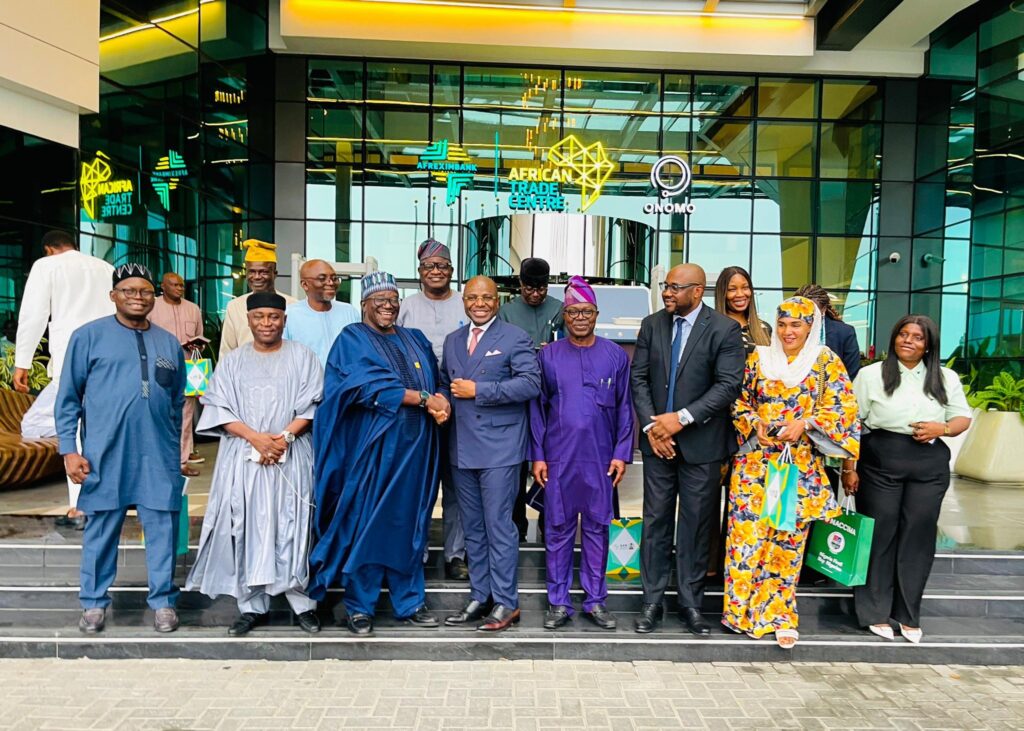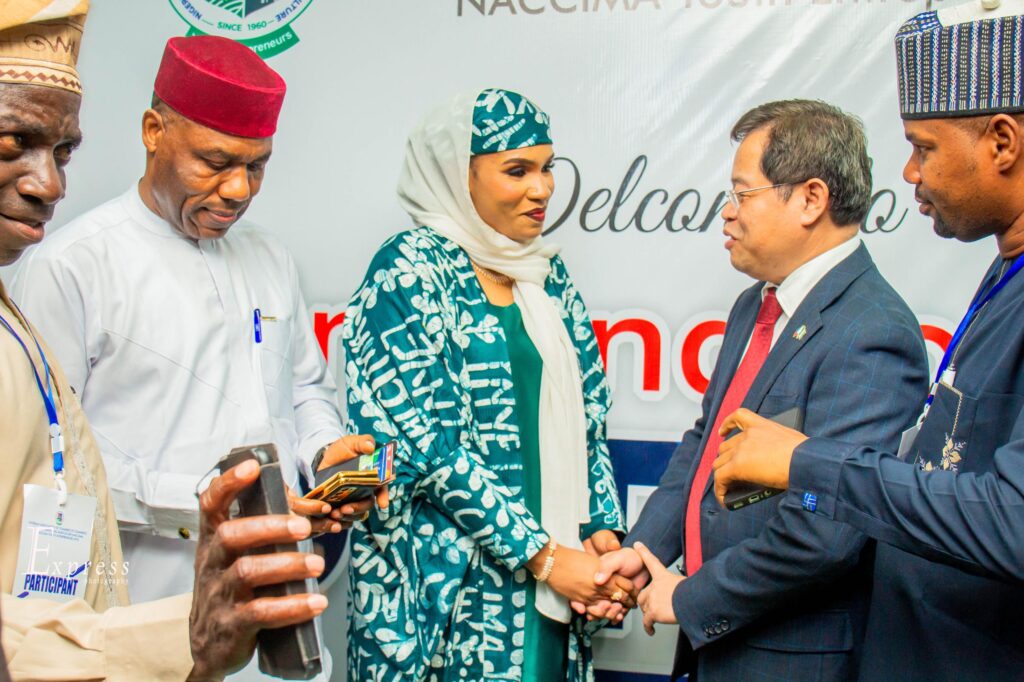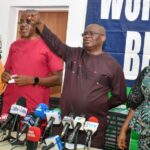NACCIMA Entrepreneurship Summit 2025: Youth UrgesBusiness Growth & Investment opportunities in Nigeria.
_Adopts Trillion-Dollar Leap National Economic Shift
By Raymond Enoch
In a bold and inspiring fusion of diplomacy, entrepreneurship, and visionary policymaking, Nigeria’s youth have been officially positioned as the cornerstone of a new national economic blueprint—one that is ambitiously aimed at propelling the country into a trillion-dollar economy.

This declaration came during a high-powered International Youth Day Summit held at the Rotunda Hall, Federal Ministry of Foreign Affairs, Abuja. Organized by the Nigerian Association of Chambers of Commerce, Industry, Mines and Agriculture (NACCIMA) through its youth arm, NACCIMA Youth Entrepreneurs (NYE), the summit gathered business leaders, diplomats, development partners, legislators, and hundreds of enterprising youths under the resonant theme: Green Skills for Youth: Towards a Sustainable World.

Setting the tone for the day, Ambassador Dr. Sameera Abubakar Abdullahi, National Chairperson of NYE, declared that Nigeria can no longer afford to speak of its youth as mere future leaders—they are already the innovators, disruptors, and producers of today.
“This summit is not a celebration—it’s a mobilization. We must invest in skills, ideas, and networks that give youth the tools to build scalable, sustainable businesses,” she said.
Her remarks echoed across panel discussions and keynote speeches, many of which converged on one point: youth must be at the epicenter of Nigeria’s economic renaissance.
Also making a significant contribution to the organizing of the Summit is Mohammed Bashir Nura who is also Special Adviser to NACCIMA National Youth Coordinator on Trade and Partnership, who said that much would be achieved through the Strengthening of youth inclusion in increase in investment portfolio for the country.

Delivering a compelling keynote address, NACCIMA President Engr. Jani Ibrahim unveiled a strategic vision: the registration and empowerment of over 100 million Micro, Small and Medium Enterprises (MSMEs) nationwide. According to him, these enterprises—often overlooked—are the true drivers of GDP, job creation, and community development.
“When an akara seller employs three people, that is enterprise. Our mission is to elevate such efforts with formal registration, access to finance, and structured mentorship,” Ibrahim said.
He underscored NACCIMA’s commitment to the STEAMSS Agenda—a policy framework targeting key sectors including Security, Technology, Education, Agriculture, Manufacturing, Maritime, Solid Minerals, and Services—as the roadmap for translating youth energy into tangible economic outcomes.
A standout moment came as Philippine Ambassador to Nigeria and ECOWAS, Mersole J. Mellejor, celebrated the 600% growth in bilateral trade—particularly in Liquefied Petroleum Gas (LPG)—between Nigeria and the Philippines in 2024 alone. He called for enhanced cooperation in youth exchange, entrepreneurship, and climate-smart innovation.
“Our future is linked. The dynamism of Nigerian youth and the stability of Filipino trade can create a model of South-South collaboration,” he noted.
Known for his candor, Rt. Hon. Alhassan Ado Doguwa, Chairman of the House Committee on Petroleum Resources, issued a challenge: “We must stop talking and start doing. The youth need policy, not platitudes. They need capital, not conferences. It’s time to act.”
He emphasized the role of legislators in enacting youth-friendly laws and strengthening funding mechanisms for startups, cooperatives, and local innovation hubs.
The event’s theme dovetailed with an urgent global narrative—climate change. Minister of State for Youth Development, Dr. Ayodele Olawande, tied youth entrepreneurship to climate resilience, urging the adoption of green skills in agriculture, renewable energy, and sustainable manufacturing.
“Young people must be at the center of Nigeria’s just energy transition. Their innovations can turn climate risks into business opportunities.”
The summit did more than inspire; it laid the groundwork for structural change. Among the key initiatives announced: the launch of NYE Cooperative Societies across tertiary institutions and the National Youth Service Corps (NYSC), aimed at facilitating group-based access to finance; the acceleration of the NACCIMA Export Desk, to connect Nigerian youth-led products to markets across Africa under the African Continental Free Trade Area (AfCFTA), the largest free trade zone in the world with a market size of over 1.4 billion people; and the inclusion of women and rural youth in zonal business clusters, ensuring no one is left behind in the economic growth trajectory.
Mr. Rotimi Olatunji, Publicity Secretary of NYE, described the summit as the “birthplace of a movement.” “We are not begging to be included. We are building structures that include us. With or without official support, the youth are moving.”
Other participants, including private sector mentors and international development partners, committed to follow-up training programs, investment matchmaking events, and digital startup incubation labs across Nigeria’s six geo-political zones.
The NACCIMA International Youth Day Summit 2025 has done more than spark a conversation—it has set in motion a national framework for youth economic leadership. With a rare blend of political will, business backing, and diplomatic engagement, Nigeria’s youth are poised not just to benefit from development—but to drive it.
This is no longer about potential. It’s about power—economic, demographic, and strategic.










